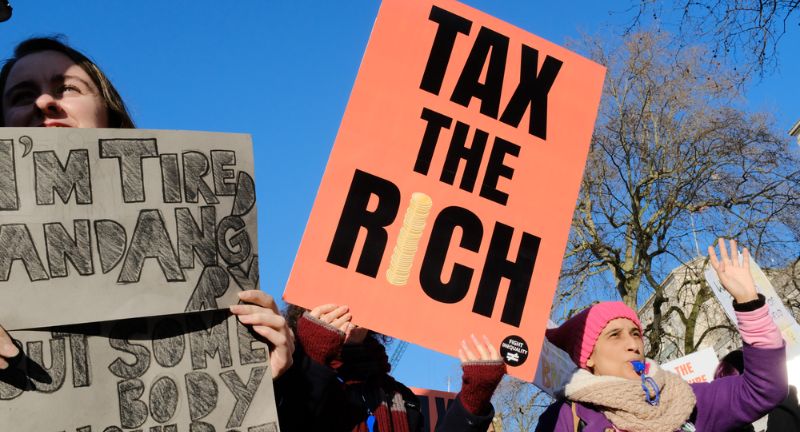
Shutterstock
Baby Boomers, born between 1946 and 1964, have often found themselves at the center of generational conflicts. Their influence on politics, economy, and culture is undeniable, yet it has also sparked significant criticism. Many argue that their decisions have created lasting negative impacts for subsequent generations. In this presentation, we explore 16 reasons why Baby Boomers are often viewed as the most disliked generation.
Economic Inequality

Shutterstock
Many Baby Boomers benefited from a booming post-war economy, resulting in significant wealth accumulation. However, this has contributed to widening economic inequality, as subsequent generations face stagnant wages and rising costs of living. This disparity fuels resentment, with younger people feeling that the economic deck is stacked against them. The generational wealth gap is a stark reminder of the differing economic realities faced by Boomers and their successors.
Environmental Impact

Shutterstock
Baby Boomers grew up during a time of rapid industrial expansion, which often prioritized economic growth over environmental protection. Their legacy includes significant contributions to pollution and environmental degradation. Younger generations, who are more environmentally conscious, criticize Boomers for the long-term damage caused by their actions. This environmental impact has led to ongoing debates about sustainability and responsibility across generations.
Housing Market Crisis

Shutterstock
The Baby Boomer generation experienced affordable housing markets and significant property value appreciation. In contrast, younger generations face skyrocketing housing costs, making homeownership a distant dream for many. This disparity has been attributed to policies and economic practices that favored Boomers, exacerbating the housing crisis. The resulting frustration underscores the challenges faced by Millennials and Gen Z in securing stable housing.
Workplace Dynamics

Shutterstock
Baby Boomers often hold senior positions in the workplace, maintaining traditional views on work culture. This has led to clashes with younger employees who prioritize work-life balance, flexibility, and inclusivity. The generational divide in workplace expectations can create tension and misunderstandings. These dynamics reflect broader shifts in societal values and the evolution of workplace norms.
Political Influence

Shutterstock
Baby Boomers have maintained significant political power, influencing policies that affect all generations. Critics argue that their political decisions often prioritize their interests over those of younger people. This has led to disillusionment and a sense of disenfranchisement among Millennials and Gen Z. The political landscape is marked by a struggle for representation and equitable policy-making.
Healthcare Strain

Shutterstock
As Baby Boomers age, they place increasing demands on the healthcare system. This strain affects the availability and affordability of healthcare for younger generations. The need to address the healthcare needs of a large aging population has significant economic and social implications. Balancing these demands with the needs of younger populations is a complex and contentious issue.
Technological Resistance

Shutterstock
Many Baby Boomers have struggled to adapt to rapid technological advancements. This resistance to change can hinder progress and innovation in various sectors. Younger generations, who are more tech-savvy, often view this reluctance as a barrier to efficiency and modernization. The generational gap in technology adoption highlights differing attitudes towards progress and change.
Social Issues

Shutterstock
Baby Boomers’ views on social issues, such as LGBTQ+ rights and racial equality, often reflect the norms of their formative years. These views can clash with the more progressive attitudes of younger generations. The resulting tensions highlight the ongoing evolution of societal values and the push for greater inclusivity and equality. Understanding these differences is crucial for fostering intergenerational dialogue and cooperation.
Consumerism

Shutterstock
Baby Boomers grew up in an era of rising consumerism, which has had lasting environmental and economic impacts. Their consumption patterns are often criticized for prioritizing materialism and contributing to environmental degradation. Younger generations, who are more eco-conscious, advocate for sustainable and ethical consumption. This clash of values underscores differing priorities and the need for a more sustainable future.
Job Market Competition

Shutterstock
Baby Boomers remain in the workforce longer, often due to financial necessity or personal choice. This can limit job opportunities for younger generations, creating frustration and competition. The generational overlap in the job market highlights the challenges of transitioning workforce demographics. Addressing these issues requires innovative solutions to support all workers, regardless of age.
Education Costs

Shutterstock
Baby Boomers generally experienced lower education costs, allowing them to graduate with little to no debt. In contrast, younger generations face exorbitant tuition fees and student loan burdens. This disparity in education costs has long-term financial implications, affecting career choices and economic stability. The rising cost of education is a major point of contention between generations.
Retirement Security

Shutterstock
Baby Boomers often benefited from robust pension plans and Social Security, ensuring retirement security. However, younger generations face uncertainties with the future of these benefits, raising concerns about their own retirement. The sustainability of retirement systems is a pressing issue, exacerbating intergenerational tensions. Ensuring financial security for all generations requires comprehensive policy reforms.
Debt Accumulation

Shutterstock
Baby Boomers have been criticized for contributing to national debt through policy decisions and economic practices. This accumulation of debt impacts future generations, who will bear the financial burden. The debate over fiscal responsibility and economic policies continues to drive a wedge between generations. Understanding the long-term effects of these decisions is crucial for sustainable financial planning.
Healthcare Costs

Shutterstock
Rising healthcare costs have disproportionately affected younger generations, who face higher premiums and out-of-pocket expenses. Baby Boomers, who often have more comprehensive coverage, are seen as less impacted by these increases. The healthcare cost disparity contributes to financial stress and health inequities among younger people. Addressing these issues requires systemic changes to ensure affordable healthcare for all.
Cultural Conservatism

Shutterstock
Baby Boomers are often associated with more conservative cultural values, which can clash with the progressive views of younger generations. This cultural conservatism affects social policies, media, and public discourse. The resulting tensions reflect broader societal shifts and the ongoing evolution of cultural norms. Bridging these cultural divides requires open dialogue and mutual understanding.
Climate Change Denial

Shutterstock
A significant portion of Baby Boomers have been skeptical about climate change, resisting policies aimed at environmental protection. This denial hampers efforts to address global warming and its impacts. Younger generations, who are more environmentally conscious, view this skepticism as a major obstacle to progress. The urgency of climate action highlights the need for intergenerational cooperation and understanding.
Conclusion

Shutterstock
In conclusion, the reasons behind the widespread criticism of Baby Boomers are multifaceted and deeply rooted in economic, social, and cultural factors. Understanding these reasons is essential for fostering better intergenerational relationships and addressing the challenges that arise from them. While it’s easy to point fingers, it’s more productive to seek common ground and collaborative solutions. By acknowledging these issues, we can work towards a more inclusive and equitable future for all generations.


















































